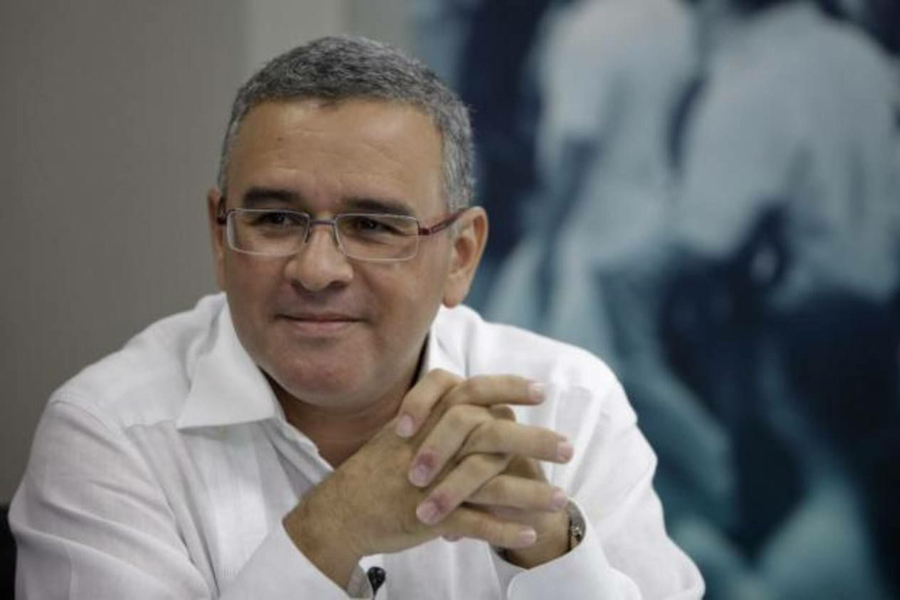
Judicial Corruption Threatens El Salvador’s Stability
El Salvador’s efforts to address internal security problems, following its civil war in the 1980s, have focused on addressing economic development and combatting drug smuggling as well as a plethora of gangs. While important to address for any functioning democracy to work properly, endemic corruption, especially within the judicial system threatens to undermine the civil institutions that are necessary to promote peace and prosperity. Judicial corruption, a constitutional crisis this past summer, and ineffectual aid efforts are ominous signs that the country may be sliding backwards under the leadership of President Mauricio Funes.
Civil society and democratic institutions will only be sustainable and successful in El Salvador with a legitimate, working judicial system that is up to the challenge of adequately resolving the plague of corruption that is currently engulfing the country’s judiciary with 80 percent of the nations judges currently under investigation. The establishment and enforcement of the rule of law and order in a nation where judicial impunity rates hover at nearly 95 percent remain a lynchpin benchmark for the long-term stability and security of El Salvador.
The Reality in Context
In March, the US State Department released its 2012 International Narcotics Control Strategy Report, and it noted, “El Salvador faces rising security and rule of law challenges. Small successes can only be sustained through leadership by the Government of El Salvador, including investments in crime prevention programs, security, and the rule of law.”
To stem the tide of instability in El Salvador’s fragile democracy, the Obama administration announced in 2011 that it was launching the Partnership for Growth (PFG), which intended to leverage “traditional and non-traditional resources” to achieve “broad-based economic growth.”
The aid effort has focused largely on enhancing cooperation and sharing various expertise’ to support economic development and trade. As such, it ran counter to previous US policies that focused largely on providing military aid and logistical support in an effort to ensure internal security as well as stability to nations like Colombia and Mexico.
A report card assessing the progress of PFG, issued in May, claimed that many of its goals were on schedule and that even efforts to reform and strengthen El Salvador’s judiciary were proceeding. However, that was only a month before a constitutional crisis began and only three months before the revelations about endemic judicial corruption emerged.
On August 31, the Spanish-language media outlet in El Salvador, La Prensa, reported that the number of judicial complaints has seen a steady increase in the past three years, with some unresolved cases dating back to 1995. Outstanding allegations and unresolved complaints include 137 this year alone: 900 in 2010, up to 1,000 in 2011 and up to 1,085 in 2012. Out of 600 judges in the country, more than 487 have complaints pending. In one particular instance, a single judge has over 60 complaints.
In 1995, El Salvador created the Department of Judicial Investigation in an effort to root out corrupt judges and to provide a mechanism for complaints to be filed as well as investigated. Since the department’s formation, there have been 3,474 cases, but only 2,389 have been closed, which means that there remains a 30 percent backlog of cases to be addressed. Even the Supreme Court has been under fire for corruption. In December of 2011, Supreme Court Justice, Jaime Bellarmine had impeachment charges filed against him. But corruption and misconduct have not been limited to the judges alone. In fact, in 2010, Mateo Alvarez, who headed the Department of Judicial Investigations in El Salvador, was fired when it was revealed that judges under investigation were accused of “excess entrapment.”
The current President of El Salvador, Mauricio Funes, a moderate leftist, has only exacerbated the problem. Following a defeat in which the leftists lost control of the National Assembly, the President and his party, the Farabundo Marti National Liberation Front (FMLN), attempted to push through numerous judicial appointments before the new parliament was seated.
The FMLN controlled National Assembly rejected a verdict by the nations highest court in June, which ruled the judicial appointments unconstitutional. This led members of President Funes’ party to demand a separate ruling by the Central American Court of Justice. The regional court didn’t have jurisdiction over El Salvador’s constitution, but it was a political move that sought to leverage the regional court because its body was controlled by sympathizing political allies. By July, El Salvador faced a constitutional crisis, which threatened stability. While a political solution appears to have been reached and the court order invalidating the judicial appointments was accepted, it points to a disturbing trend.
Situation Assessment
Wide-scale corruption by public officials is an ongoing challenge for El Salvador and many Latin American nations, but the scale and breadth of alleged improprieties within the judicial system and President Funes efforts to undermine El Salvador’s court system, casts a negative outlook for rooting out one of the most significant underlying causes of domestic instability, if left unchecked. According to Transparency International, a civil society organization that seeks to fight global corruption, measures global corruption with its annual Corruptions Perception Index. The index “ranks countries and territories according to their perceived levels of public sector corruption.” In its 2004 report, El Salvador ranked 51 out of 145 nations. However, over the years that number has increased precipitously. In 2010, it ranked 73 out of 178 and in 2011 El Salvador’s corruption ranking increased to 80 out of 182.
The PFG report card and the US policy of bilateral exchanges of expertise may appear on the surface as having successful outcomes, but with the recent reports that judicial corruption and alleged misconduct are still on the rise, it would appear that PFG is, in fact, doing little more than applying makeup on a simmering wound. President Funes and the FMLN desire to secure its position of power by illegally appointing numerous individuals to key judicial posts was more than a simple political ploy. It struck at the very root of El Salvador’s democracy. It followed the example of dictators in the hemisphere like that of Hugo Chavez in Venezuela. While the effort seems to have failed, it is disconcerting that the President of El Salvador’s political party would seek to circumvent the Constitution so blatantly, especially following the condemnation of many international observers and its highest courts ruling it unconstitutional.
Respecting the rule of law and the safeguards guaranteed by the nations Constitution provides civil society and the democratic institutions the means to support their legitimacy. When the legal apparatus is used as a political weapon or is infected with widespread corruption it becomes a tool for oppression. The judiciary and its impartiality serves as a guiding enforcer of social norms and must serve as a protection mechanism against oppression and undue influence. In this regard, El Salvador continues to fall short.
Conclusion
The widespread corruption within El Salvador’s judiciary, the political interference precipitating a constitutional crisis and the lackluster effectiveness of PFG suggest that the nation is inching closer to the abyss and positioning itself to slide backwards. Increasing indications that the judiciary is part of the problem and that political aims are further undermining the judicial system provides the negative conditions required for increased instability.
Combine that with the political machinations of the current party in power to stack the judicial bench only exacerbates the problems. Additionally, the inability of the PFG plan to achieve significant reform is further evidence that the outlook for El Salvador is increasingly negative. The August report on the breadth and scope of corruption in El Salvador’s judiciary as well as the trend line towards greater corruption paints an increasingly murky picture of the country’s future. While the jury may be out at present, it seems clear rooting out corruption will remain one the country’s biggest hurdles in the years ahead.
